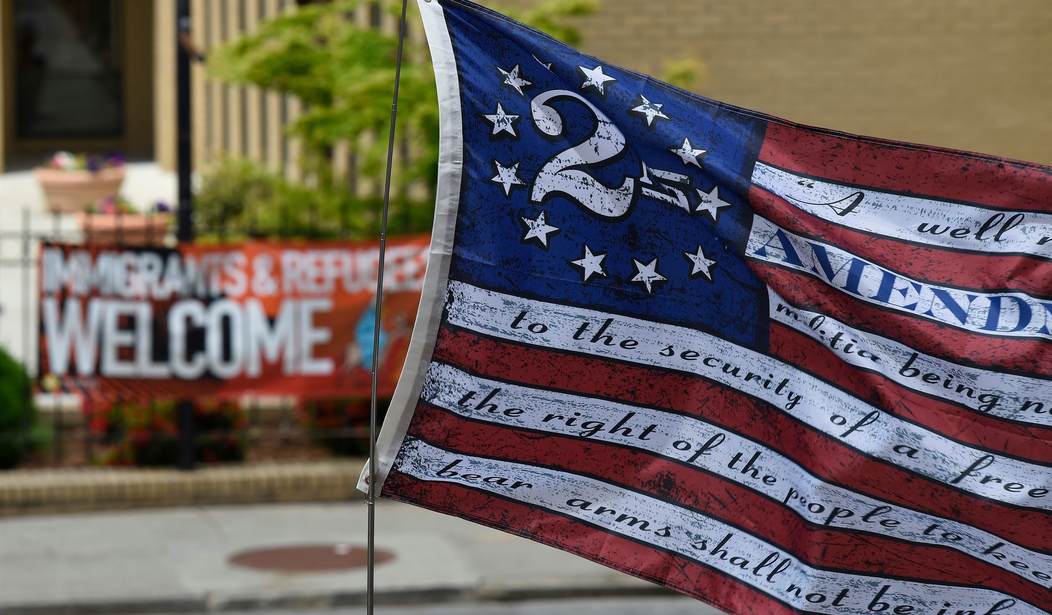The nature of the Second Amendment probably shouldn’t be up for debate, yet debate remains.
One favorite line of attack, particularly post-Heller and Bruen, is to claim that the Founding Fathers never intended for the amendment to be interpreted as an individual right, that this idea that it applies to people like you and me is a purely modern invention.
However, over at The Reload, there’s an interesting piece showing that to be the real modern fabrication.
Gun-control advocates still use this argument, with The Intercept asserting in a June 2022 article that “no law review article from 1888 (when they were first indexed) through 1959 ever concluded the Second Amendment guaranteed an individual right to a gun.”
There are three ways to test the claim that the NRA and other gun-rights advocates created the individual-right view in the last several decades: What did the founders say? What did older case law say? And what did prominent second-generation American legal scholars and elected officials say?
The courts and the public writ large have already deeply examined the first two options.
For example, Madison’s argument in Federalist 46 that Americans have “the advantage of being armed” that governments denied to “the people of almost every other nation” has been widely cited in public debate. The same can be said for Tench Coxe proclaiming in Remarks on the First Part of the Amendments to the Federal Constitution, under the pseudonym “A Pennsylvanian,” as part of the June 18, 1789 edition of the Philadelphia Federal Gazette that “the people are confirmed by the article in their right to keep and bear their private arms.”
Similarly, with its landmark decisions in Heller, McDonald, and Bruen, the Supreme Court has cited extensive early case law in justifying its embrace of the individual rights view.
So, let’s focus on the final category: how did early American legal scholars interpret the Second Amendment? While various quotes are cited here and there, such as former Supreme Court Justice Joseph Story’s 1833 claim that “the right of the citizens to keep and bear arms has justly been considered, as the palladium of the liberties of a republic,” this area remains forgotten by most people.
But, thanks to the digitization of old texts on Google Books and Google Scholar, access to second-generation American viewpoints is easier now than ever before.
A review of 19th-century scholarly writings reveals there were two dominant camps when it came to the Second Amendment. The first included those who took a nearly absolute view that it guaranteed access to any weapon. Then there were those that believed the right was primarily limited to weapons most useful for warfare. However, the idea that the Second Amendment protected an individual right connected the two sides.
Honestly, go read the whole thing. It clearly illustrates that throughout the 19th century, various thinkers and politicians believed that the right to keep and bear arms enshrined in the Second Amendment protected an individual right, not a collective one as many claim.
This is important since the claim that our interpretation of the Second Amendment is a purely modern invention cannot stand up to scrutiny if such quotes exist.
It’s fine to suggest that not everyone else had that view but what you cannot do is simply pretend the idea of an individual right was made up out of the ether in the 20th Century.
Sure, there was debate as to the nature of the Second Amendment, just as there is now, but that debate seemingly took different forms. For one thing, there were those who argued it merely restricted the federal government from taking gun control actions. Yet that was before the 14th Amendment was ratified.
Again, I suggest you read the whole thing because authors Stephen Gutowski and Konstandinos Moros have pretty much eviscerated the argument that the concept of the Second Amendment preserving an individual right being invented in the 20th Century to the point that it shouldn’t even be able to come back as a zombie concept.
Frankly, I’ve always been sick of it since it made no sense anyway. Why does “the people” in the Second Amendment mean states when it doesn’t mean that literally anywhere else in the Constitution? That’s essentially what their arguments boil down to.
This fine work puts to rest this silliness once and for all.








Join the conversation as a VIP Member